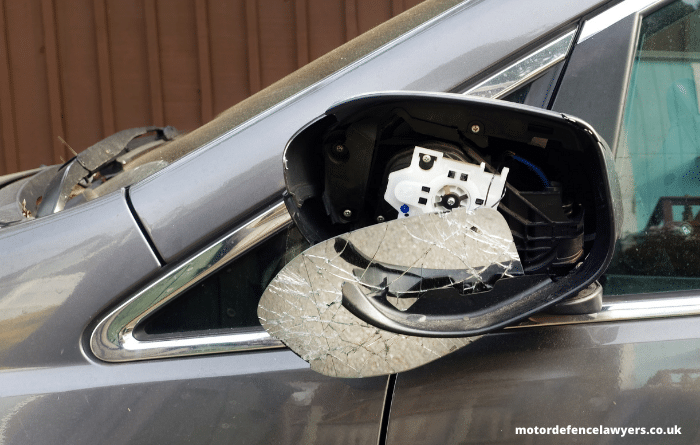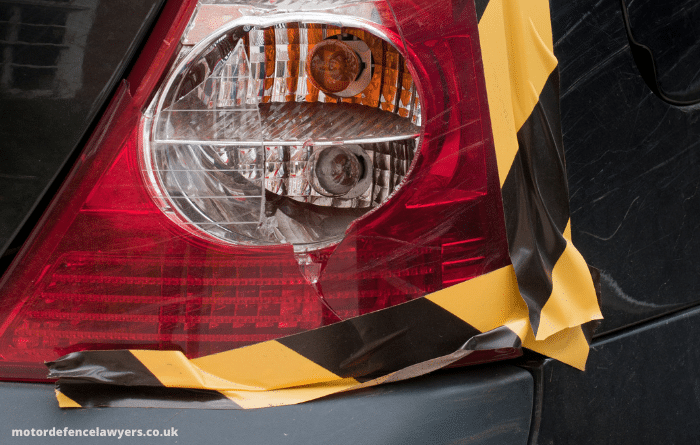Why Choose Us
- Ranked in the top 3 law firms by Trustpilot
- Nationwide Legal Coverage
- Free Consultation
- Fixed Fee Terms
- Competitive Rates
- Flexible Payment Plans
- Trusted Legal Care
- UK’s Leading Motoring Solicitors
5 out of 5
Our customers rate us
“EXCELLENT”
AS SEEN ON
05.08.2021
Hit and Run Offences – What Happens Next?

Failing to stop and report an accident is a criminal offence, so hit and run offences can lead to a wide range of potential sentences from points to driving bans and even imprisonment. A hit-and-run offence is legally referred to as an offence of failing to stop and report after an accident. These matters can range from minor scuffs and bumps to more serious incidents causing serious damage or injury.
Navigating the options available to you can be complex and you should therefore look to obtain advice from a legal professional. This article will outline the immediate steps taken by the police in these cases, the manner in which they can be defended or mitigated and the potential sentences which could be imposed.
Contact Caddick Davies Solicitors today
Send us a message or call us on 0333 443 2366 for friendly advice
As above, a hit and run offence is actually an offence of failing to stop and report an accident. The offence itself is outlined within Section 170 of the Road Traffic Act 1988 which requires drivers to:
“stop and, if required to do so by any person having reasonable grounds for so requiring, give his name and address and also the name and address of the owner and the identification marks of the vehicle”.
Should the driver, for any reason, fail to provide his name, address or insurance details to someone with reasonable grounds for requiring such information, then that driver must report the accident.
The requirement to stop and report occurs when a driver either
It is often clear to determine if another has been injured, however, it can be more complex when considering if you should stop for damage caused. It is important to clarify that you MUST stop if any damage is caused to:
Whilst it is advisable that you stop for any animal that you injure or collide with, the law only stipulates a requirement to do so for horses, cattle, ass, mules, sheep, pigs, goats or dogs.
If you are ever in doubt, the best course of action is to simply stop and report the accident anyway.
Contact Caddick Davies Solicitors today
Send us a message or call us on 0333 443 2366 for friendly advice
Most ‘hit and run’ cases begin when a member of the public contacts the police or provides footage regarding the alleged offence. It is therefore the case that the initial evidence available to the police is that which is provided when the report is made.
When the police receive a report that someone has caused damage or injury and failed to stop, they will likely attend the scene to gather further evidence. The police treat these offences very seriously and will look to gather CCTV, dashcam and even doorbell camera footage where available. They will regularly canvas the area and take further statements from any witnesses involved.
For the most part, the police are looking to secure and retain any evidence that damage or injury was caused and of the vehicle or person that may have caused it. As you will no doubt guess, your vehicle make, model, registration, colour and identifying features become a top priority for the police.
Once any identifying evidence is obtained the police will proceed to look for the individual responsible which often involves searching the area and attending the address at which the vehicle is registered.
In the absence of clear footage or admission from the driver, it can be difficult for the police to identify who was driving the vehicle at the time of the offence.
As a result of this, the police may require anyone suspected of committing the offence to attend a police station for interview. Whilst this can be an opportunity for you to provide your side of the story, the police will also be looking to gather any further evidence as to the nature of the offence and identity of the driver.
You are always entitled to legal representation during interview and it advisable that you take advice from a legal professional so as to best protect your position.
Contact Caddick Davies Solicitors today
Send us a message or call us on 0333 443 2366 for friendly advice
Another method that the police can use to identify a driver is the sending of a Notice of Intended Prosecution, usually referred to as an ‘NIP’, combined with a Section 172 request. This is a legal request for information which is sent to the registered owner and keeper of a vehicle. The purpose of this notice is to inform the individual that the police intend to prosecute the driver for the alleged offence whilst also requesting that details of the driver be provided.
Should the recipient fail to respond to this request for information they would likely incur a minimum penalty of 6 points and a fine.
When investigating a hit and run offence the police will, where possible, take photos of the vehicles involved and any damage present.
This type of evidence can be used to place your vehicle at the scene of the incident whilst also proving that damage has occurred. In more serious cases the police can undertake a forensic examination of the vehicle in order to identify the driver. The most common instance where this is used is when the drivers airbag has been deployed following a collision. The police can obtain DNA from the airbag in order to find out who was driving.
It is good practice to report motoring incidents with the police, however, not all collisions require you to do so.
In extremely minor matters where parties exchange the relevant information, are uninjured and can drive away with their vehicles intact, there would not usually be a requirement to contact the police.
In cases where there has been injury, other road users may be at risk or details cannot be exchanged the requirement to report the matter to the police still exists. Such offences should be reported as soon as reasonably practicable and no more than 24 hours after the incident.
It is not unusual for drivers to be unaware of minor bumps or scuffs that may have occurred. Most minor incidents of this nature occur whilst manoeuvring a vehicle in a car park or on tight residential streets.
In circumstances where you were unaware that any damage or injury occurred, you can present a defence in line with the case of Harding v Price [1948]. In short, you cannot be expected to report on something for which you had no knowledge.
It would be for the Defence to prove on the balance of probabilities that you were unaware of the incident in question. This is an argument heavily reliant on the evidence and your credibility as a witness. Of course, it is more reasonable to argue that you were unaware of a small scuff in comparison to a big collision causing clear and obvious damage or injury.
Each case is unique in this scenario, and it is therefore best to discuss your options with a professional.
Contact Caddick Davies Solicitors today
Send us a message or call us on 0333 443 2366 for friendly advice
Due to the serious nature of this offence, it can be beneficial to present mitigation in an attempt to keep any sentence imposed to a minimum.
Mitigation may relate to the commission of the offence itself as well as any personal circumstances that the court should consider.
When considering mitigation bear in mind:

Contact Caddick Davies Solicitors today
Send us a message or call us on 0333 443 2366 for friendly advice
The sentencing guidance for failing to stop and report is wide ranging and mainly categorised based upon the culpability and harm involved.
There are three categories with the following sentencing ranges:
| Level of seriousness | Starting Point | Range | Disqualification/points |
| Category 1 | High level community order | Low level community order – 26 weeks’ custody | Disqualify 6 – 12 months OR 9 – 10 points (Extend if imposing immediate custody) |
| Category 2 | Band C fine | Band B fine – Medium level community order | Disqualify up to 6 months OR 7 – 8 points |
| Category 3 | Band B fine | Band A fine – Band C fine | 5 – 6 points |
A case is considered to be higher harm if:
A case is considered to be higher culpability if:
There a number of further considerations that the court would take into account when imposing sentence and the overall seriousness of the offence will always be considered.
Contact Caddick Davies Solicitors today
Send us a message or call us on 0333 443 2366 for friendly advice
Hit and run offences are extremely serious and are regularly linked with charges of careless or even dangerous driving. The offence itself is often easily aggravated by the presence of serious damage or injury and can lead to the imposition of a custodial sentence.
Obtaining thorough and detailed advice on any potential defences or basis of mitigation can be vital in securing a positive outcome.
If you are looking for expert legal advice relating to any of the above issues, then please contact our office on 0333 443 2366 for a free consultation.
Why Choose Us
We have been successfully representing clients in motoring courts nationwide
Contact us for a free consultation, our expert solicitors will be able to discuss your case and advise on legal options.
Birmingham
Bradford
Bristol
Carlisle
Cardiff
Chelmsford
Huddersfield
Hull
Manchester
Liverpool
Leeds
London
Newcastle
Norwich
Nottingham
Sheffield